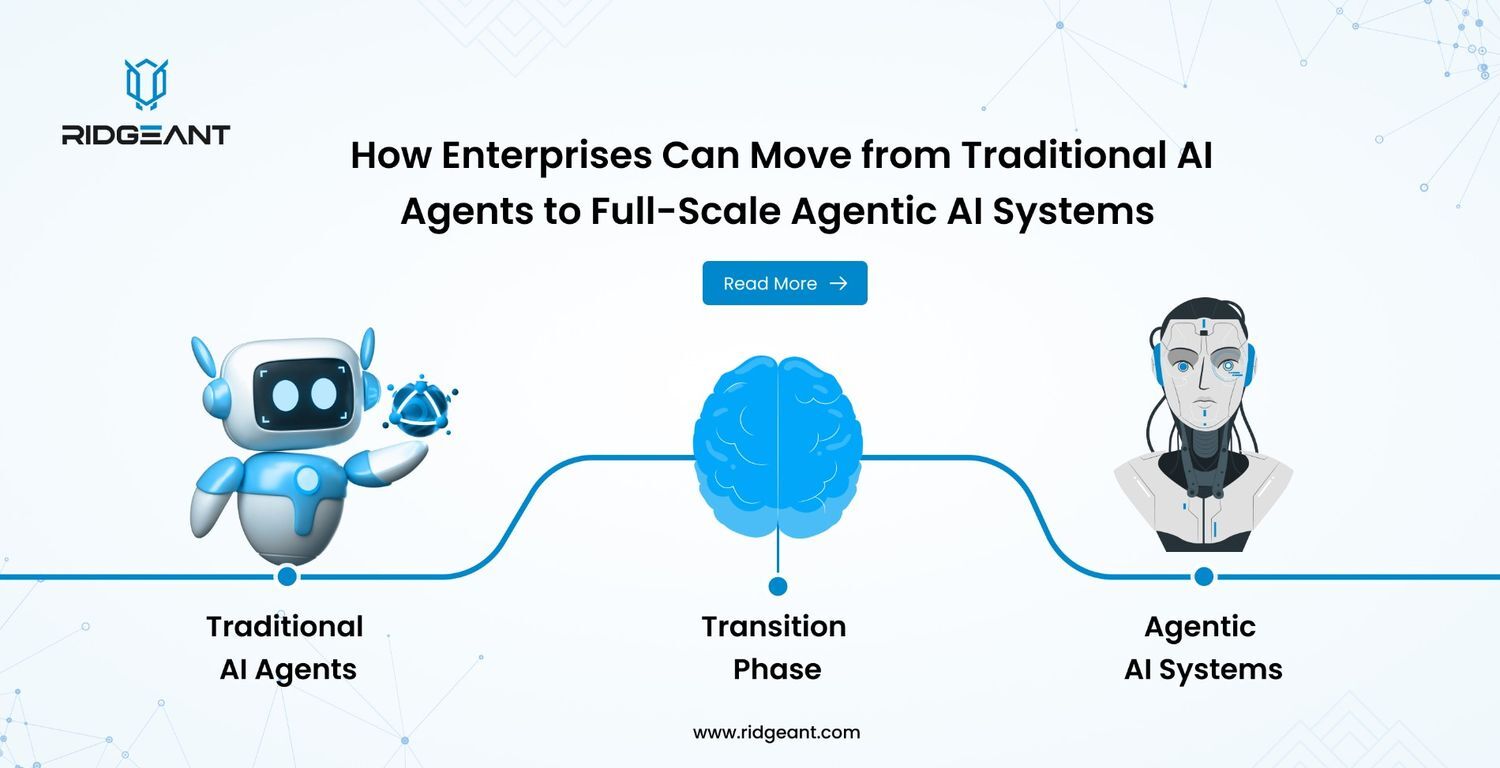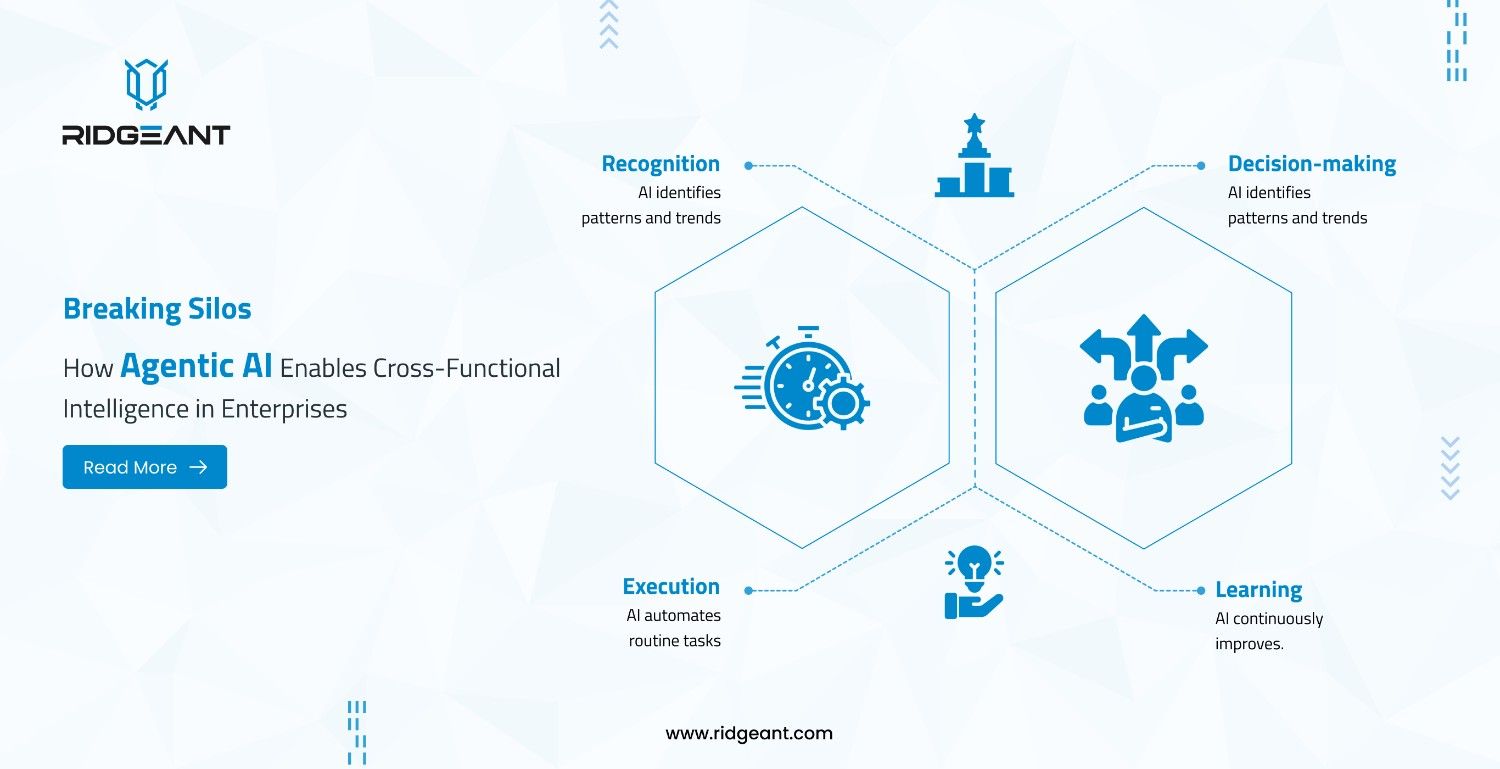
Enhancing Productivity and Organizational Value Through Data Culture
- Data Analytics, Data Engineering, DataOps, Data Science
- January 29, 2024
- Ridgeant

“The goal is to turn data into information, and information into insight.” – Carly Fiorina.
In today’s competitive and modern-day world, data is an indispensable ingredient. Organizations are collecting huge amounts of data for enhanced agility and efficiency, while individuals are learning how to extract the best out of data. This brings in the latest mantra of today – ‘Data culture’ – a positive and harmonious terminology that is the ‘in’ thing today.
This interesting read is aimed at exploring the fundamentals of data culture and its associated benefits, pillars, challenges, and steps involved in creating an effective data culture in organizations.
What is Data Culture?
Data culture is the principle established in the process of social practice in both public and Private sectors, which requires all staff and decision-makers to focus on the information conveyed by the existing data and make decisions and changes according to these results instead of leading the development of the company based on experience in the field.
As the name suggests, data culture is a dynamic process that talks about creating an organizational environment wherein data is easily available for business decision-making. It ensures that data literacy is prevalent all over and individuals as well as businesses are used to seeing data-driven insights as a meticulous process.
It brings into its umbrella – attitude, behavior, and practice, all of which can be leveraged to make data an easily accessible commodity. Data flows across departments easily, becoming an integral part of decision-making. The entire workforce makes use of different analytical and statistical methods to fulfill their objectives and enhance productivity.
Be it any department – marketing, finance, HR, or sales, all departments are equally involved in consolidating data across systems and making it available with ease and security. Organizations create a data culture based on the flowing data for better decision-making. Data is the key; data is the path, and data is the ultimate truth.
Good Read: Data Debt: Causes, Types, Consequences, and Mitigation Strategies
Pillars of Data Culture
As we discuss such widespread terminology, there must be some strong pillars on which it stands tall. Yes, here are the pillars of data culture based on what it brings under it, the entire organizational workflow and data within:
- Data-Based Decisions – Making decisions based on data and not on perception. Considering data to be the center of the entire business workflow mechanism.
- Data Literacy – Ensuring the entire task force is capable of understanding, communicating, and analyzing data that is within its limits and coming from other departments.
- Data Search and Discovery – The ability of the task force to search for relevant data in real-time that can be of great use in making decisions.
- Data Democratization – Helping people reach out to data by solving issues that come in between and empowering the masses to make decisions based on data insights.
- Data Governance – Managing and monitoring data in the best way possible so that rules and regulations are adhered to most appropriately.
- Commitment to Leadership – There cannot be data culture imbibed without good leaders who can encourage data literacy and ensure it is secure and available.
- Data Trust – Until we don’t learn to trust the data that we have collected or the one that is flowing within, it is not possible to create a data culture.
Key Advantages of Data Culture in Today’s Business World
Data culture seems important, but why? Here are some of the evident benefits that it brings along that form the core reasons for it being so significant:
- Empowers businesses to make significant decisions, increase operational efficacy, and drive performance
- Brings in data-driven insights with more precision and security
- Effective business strategies with productive outputs
- Positive impact on employee engagement, job satisfaction
- Promotes transparency with better role management and ownership
- Encourages teamwork and collaboration between departments
- Helps in staying abreast of the competitive world
- Improves business strategies, keeping in mind futuristic trends and patterns
- Leverages data to find out the cause and effect of augmented choices
- Increases revenue opportunities and marketing effectiveness
- Identifies and mitigates risks through proper data governance
Key Challenges For Data Culture That Could Pose Issues
Organizations are keen to follow the data culture way and should be. Just keeping in mind associated challenges will help in finding better ways to overcome them.
Here are certain hurdles that may pose trouble:
- The shortage of skills and talent within the task force
- Poor data quality issues
- Cultural resistance to change by the task force
- Continuous changes in the technology landscape
- Fundamental changes in the business way of working
- Lack of data literacy for correct data interpretation
- Ensuring data privacy and security
Major Steps in Data Culture for Enhancing Productivity
As easy as it looks, implementing an enriched data culture is a tough task. The below steps can surely help in ensuring a disciplined approach and, thereby, a productive output:
- Evaluate Your Existing and Desired Business Outcomes
It is important to understand where your organization is and where you want it to be. A thorough assessment must be performed that goes through different capabilities like skills, leadership, collaboration, etc after this evaluation, organizations can start imbibing data culture systematically.
- Garner Trust from Organizational Stakeholders
Till you don’t have all stakeholders in the organization by your side, it is difficult to implement a change at the cultural level. Each organization has its pros and cons, its strengths and weaknesses. Implementing data culture must be analyzed while keeping in mind your organization’s competence and awareness to drive change.
- Create Competence Across the Business Units
Learning, training, and orientation are a must to create competence across the organization. As you implement data culture, the entire task force must be involved in a continuous learning process. Everyone must understand that data is now a crucial part of any business decision and must be availed extensively.
- Look for Existing Challenges at the Start
Going in for attaining data culture without knowing what challenges can come in the way is not the ideal way. Before starting, organizations must analyze what hurdles can hamper progress. By understanding this, stakeholders will find it easy to embed a new culture amongst the users with a smooth implementation.
- Invest in Enhancing Data Infrastructure
Collecting, analyzing, merging, and consolidating data is important. Go in for advanced methodologies and infrastructure that can help in managing data with ease. All departments, in synch with the IT department, must learn how to get optimal information out of data.
Wrapping It Up
Overall, creating and nurturing a data culture is not a one-time task; it is a continual journey that needs regular planning, sincerity, motivation, and efforts to pull it through. Yes, organizations may start feeling the benefits as soon as initiatives are implemented, but the real output can be realized once there is total implementation of all needed steps.
Most organizations imagine becoming a data-driven enterprise. With Ridgeant, you can execute data culture in your organization, and we can partner with you to create the right kind of data-centric culture.
Ridgeant’s data analytics consulting offers to unlock actionable insights and to evolve into a genuinely data-driven organization. Be it predictive modeling, machine learning, or progressive data visualization; we offer personalized solutions to boost your data-driven journey.
We provide robust data infrastructures capable of effectively gathering and uniting data from numerous sources. We empower organizations with the data engineering capability necessary for insightful decision-making.
Our data warehousing solutions urge organizations to combine and leverage data efficiently, unlocking actionable insights for learned decision-making.
Imbibe data culture in your organization with us; contact us, and we will be glad to serve your data-centric needs!














